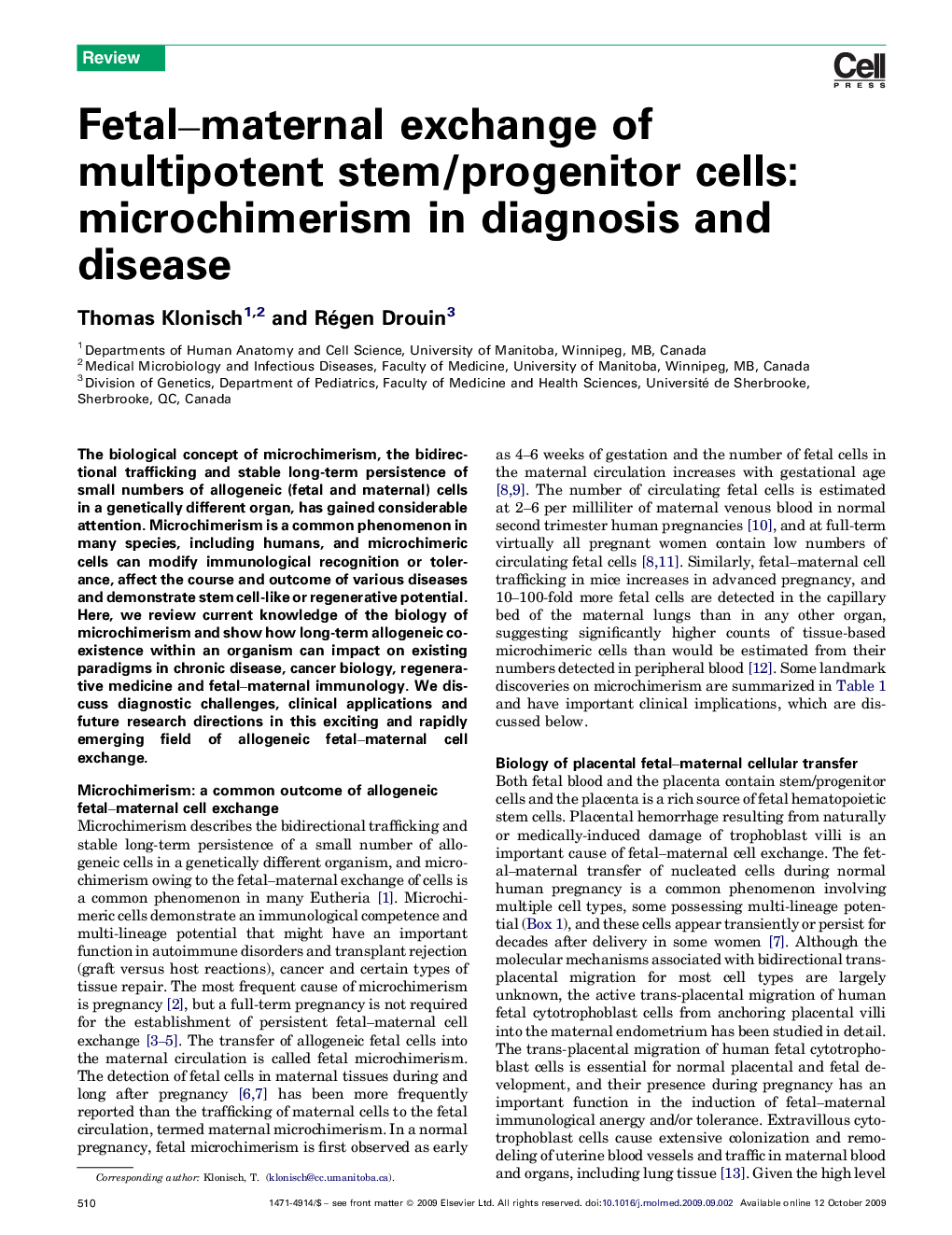| کد مقاله | کد نشریه | سال انتشار | مقاله انگلیسی | نسخه تمام متن |
|---|---|---|---|---|
| 2839069 | 1165081 | 2009 | 9 صفحه PDF | دانلود رایگان |

The biological concept of microchimerism, the bidirectional trafficking and stable long-term persistence of small numbers of allogeneic (fetal and maternal) cells in a genetically different organ, has gained considerable attention. Microchimerism is a common phenomenon in many species, including humans, and microchimeric cells can modify immunological recognition or tolerance, affect the course and outcome of various diseases and demonstrate stem cell-like or regenerative potential. Here, we review current knowledge of the biology of microchimerism and show how long-term allogeneic co-existence within an organism can impact on existing paradigms in chronic disease, cancer biology, regenerative medicine and fetal–maternal immunology. We discuss diagnostic challenges, clinical applications and future research directions in this exciting and rapidly emerging field of allogeneic fetal–maternal cell exchange.
Journal: - Volume 15, Issue 11, November 2009, Pages 510–518